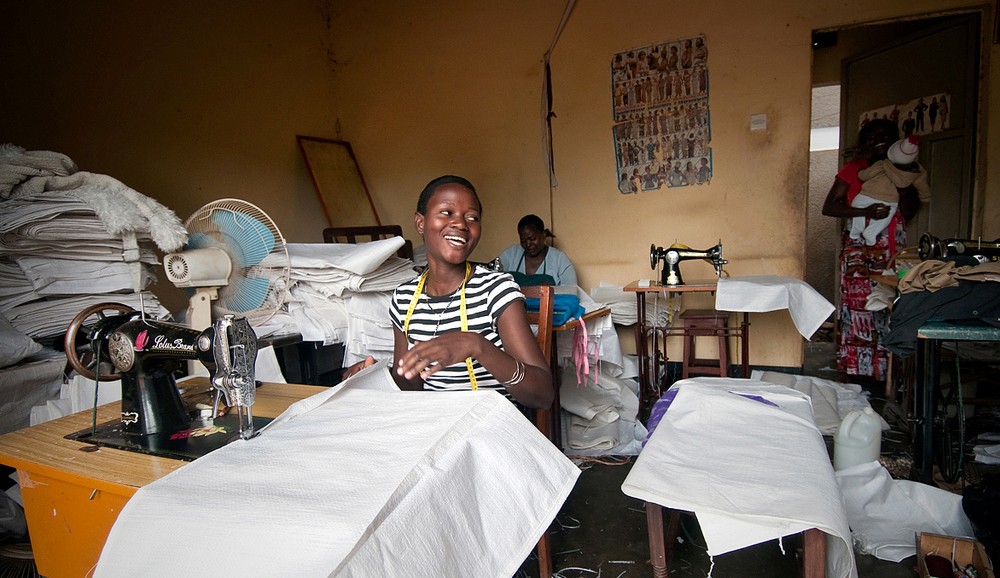For all their flaws, capitalism and its profit-maximizing private enterprises have created enormous prosperity and wealth over the past century, improving living standards around the world. Yet as globalization accelerates a global “race to the bottom”—as integrated markets push down on regulations and wages—the shortcomings of the free-market system have become harder to ignore: growing income inequalities, a stark clash of classes, exploited labor, exhausted resources, and permanently altered ecosystems. Today there are protests on Wall Street, riots in Greece, bailouts on both sides of the Atlantic—seemingly everywhere, political upheaval and social unrest.
Across national, social, and economic boundaries, the capitalist system is being cut open and exposed, criticized and amended. Couch surfers and Craigslisters alike build barter-based economies. Shoppers respond to “cause marketing” efforts and pay more for fair trade. Harvard academics propose new forms of corporations that “create shared value.” Corporations tout their social responsibility programs and social impact assessments.
While these are all noble strategies, they ultimately don’t change a simple fact: the fundamental motivator of the capitalist corporation is profit.
Enter the social entrepreneurs that are bringing about a rebirth of capitalism—this time, in the emerging economies of Asia, Latin America, and Africa. These “new capitalists” are pioneering private-sector solutions to some of the world’s greatest challenges in health, water, sanitation, and energy. They are following the blueprint laid out by the late professor C.K. Prahalad, who called for tapping into new markets and fortunes at the bottom of the economic pyramid, and drawing inspiration from recent success stories, such as “Banker to the Poor” Muhammad Yunus and his Grameen Bank, winners of the 2006 Nobel Peace Prize.
Social enterprises find profits in poverty, but their zeal for providing essential products and services to the poor—in parts of the developing world shunned by most major corporations—means that a much broader population benefits as well. By carefully balancing economic and social profits, these businesses—and their cause-minded, capitalist founders—are rewriting the global narrative of “pity” for developing countries, cultivating the potential even within formerly marginalized societies for intense levels of entrepreneurship and self-improvement.
For over a year, the (BoP) Project has traversed East Africa, exploring how these new models of private enterprise are addressing some of the most crucial issues in the region. From the slums of Kampala, Uganda, to the pulsing heart of Nairobi, Kenya, to the rolling green hills of Rwanda, these photographs and stories reflect the promise of the entrepreneurial energies at the base of the economic pyramid.
In Kitui, Kenya, I can still recall the emotion of the moment when Masaki John, a widowed Kenyan farmer, offered me a live chicken for taking a photograph of her and her three sons. Her eight beehives produce honey that is guaranteed to be purchased, at fair market prices, by Honey Care Africa, a social enterprise.
I still remember the shock I felt when Veronica, head cashier at an Ikotoilet facility in the central business district of Nairobi, Kenya, told me she once helped deliver a child in a bathroom stall. These high-quality, public, pay-per-use toilet and shower facilities, located in urban areas of Kenya and built by the social enterprise Ecotact, are not only the best option in town for a shave, toilet, and shower, but apparently on multiple occasions have been used by women going into labor, because of their highly sanitary conditions.
I remember the swell of excitement in the crowd as we pulled in just after dusk to the village of Musubiro in Central Uganda, with Ronald, a “solar entrepreneur” working for a social enterprise called Barefoot Power. As he set an array of home solar products on the hood of the car, the blue LED lights from these rugged little devices illuminated the faces of the children in front. For the cost of just two-and-a-half months of kerosene, a Firefly provides enough clean lighting for almost two full years. Across Uganda, there are over 160 solar entrepreneurs like Ronald, and collectively they’ve sold over 200,000 Firefly kits.
Each of these memories, illegibly scribbled in a stack of well-worn Field Notes Brand notebooks and buried at the bottom of an old rucksack, reminds me why these social enterprises exist. Behind that veil of poverty, beyond the images broadcast to the Western world of poor, helpless people in need of your charity, there is an incredible potential waiting to be recognized and rewarded.
Next year would have been the one hundredth birthday of Nobel Prize-winning economist and free-market apostle Milton Friedman. At this critical juncture for capitalism, it’s worth harking back to one of Friedman’s most important points: private enterprise is the foundation of economic prosperity. If private enterprise was the foundation of economic prosperity over the past hundred years, perhaps a little tweaking of the capitalist model will turn private enterprise into the foundation of social prosperity for the next hundred. Where multinational corporations and embattled governments have failed, social enterprises will hopefully find success.
Jonathan Kalan, founder of the (BoP) Project, is an internationally published journalist, photojournalist, and blogger specializing in social business and innovation in emerging markets. Based in Nairobi, Kenya, he is a staff writer for NextBillion.net, a regular contributor to Dowser.org, and a 2011 finalist for the Diageo Africa Business Reporting Awards.
- Follow us on Twitter: @inthefray
- Comment on stories or like us on Facebook
- Subscribe to our free email newsletter
- Send us your writing, photography, or artwork
- Republish our Creative Commons-licensed content

